India must not be allowed to use water as weapon, PM tells ECO
Shehbaz Sharif thanks ECO states for backing Pakistan, warns India’s water weaponisation is an alarming new threat
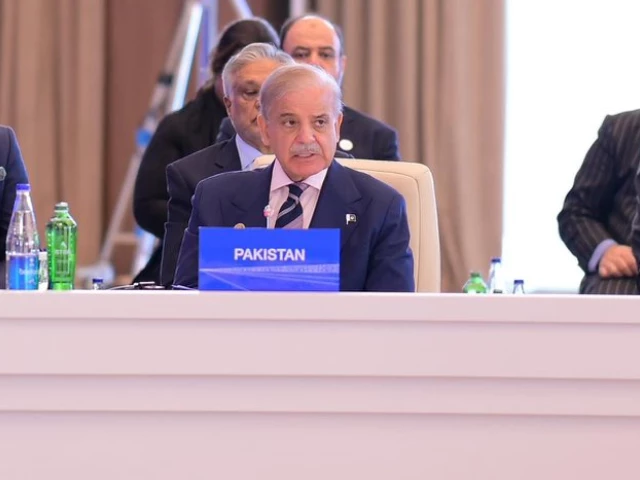
Prime Minister Shehbaz Sharif on Friday warned that India’s weaponisation of water represents a “new and alarming trend” in its hostility towards Pakistan, calling it an act of aggression that must not be tolerated under any circumstances.
Addressing the 17th Economic Cooperation Organization (ECO) Summit in Azerbaijan, the premier condemned India’s recent actions following its military escalation earlier this year.
He thanked ECO member states for standing in solidarity with Pakistan amid New Delhi’s aggressive steps, including the unilateral suspension of the Indus Waters Treaty, diplomatic downgrades, and border closures.
Tensions surged after India accused Pakistan of orchestrating the April 22 attack in Pahalgam that left 26 people dead—an allegation Islamabad categorically rejected as baseless.
Read More: Pakistan, Iran reaffirm commitment to bilateral relations on sidelines of ECO Summit
The crisis peaked in early May, when missile strikes targeted cities across Punjab and Azad Jammu and Kashmir, resulting in dozens of civilian casualties. Pakistan responded with Operation Bunyanum Marsoos, striking Indian military installations. A US-brokered ceasefire was announced on May 10.
Highlighting the regional impact of India’s actions, the prime minister criticised New Delhi’s defiance of the World Bank-mediated Indus Waters Treaty and its disregard for a ruling by the Permanent Court of Arbitration, calling both acts unacceptable.
Prime Minister Muhammad Shehbaz Sharif addresses the 17th ECO Summit in Khankendi, Azerbaijan. #PMShehbazInAzerbaijan#PMShehbazAtECO pic.twitter.com/cW0zBGmMQD
— Government of Pakistan (@GovtofPakistan) July 4, 2025
“The waters of the Indus are the lifeline for Pakistan’s 240 million people,” he said. “Under no circumstances can India be permitted to pursue this dangerous path, which would amount to an act of aggression against the people of Pakistan.”
Turning to economic cooperation, PM Shehbaz emphasised the need to enhance trade and investment to boost regional connectivity. He noted that the ECO Trade Agreement, agreed during the 13th ECO Summit in Islamabad in 2017, remains unimplemented despite the passage of considerable time.
He also addressed the devastating impact of climate change, citing the 2022 floods that affected over 33 million people, destroyed infrastructure, and caused economic losses exceeding $30 billion.
Prime Minister Muhammad Shehbaz Sharif in family photo of the 17th ECO Summit being held in khankendi, Azerbaijan.#PMShehbazInAzerbaijan#PMShehbazAtECO pic.twitter.com/KcLHASdyLd
— Government of Pakistan (@GovtofPakistan) July 4, 2025
The premier urged regional collaboration to address climate risks, proposing low-emission transport corridors, a regional carbon market platform, and disaster resilience systems.
He also called for a dedicated framework to mobilise climate finance, develop clean energy corridors, and promote eco-tourism for sustainable and inclusive growth.
Condemning recent Israeli strikes on Iran and the continuing violence in Gaza, PM Shehbaz described both as threats to regional peace.
Reiterating Pakistan’s firm stance against violence and oppression worldwide, he said, “We stand united against those committing barbaric acts against innocent people — whether in Gaza, Indian Illegally Occupied Jammu and Kashmir (IIOJK), or Iran,” he said.
براہِ راست: وزیرِ اعظم کی 17ویں اقتصادی تعاون تنظیم کے اجلاس میں آمد https://t.co/MGqwJ6XvVP
— Government of Pakistan (@GovtofPakistan) July 4, 2025
The prime minister extended his gratitude to Azerbaijan’s President Ilham Aliyev for hosting the summit in Khankendi and acknowledged the ECO Secretariat’s efforts in advancing regional cooperation.
He also thanked the people and government of Azerbaijan for their warm hospitality and reaffirmed Pakistan’s commitment to regional peace and development.
PM Shehbaz expressed appreciation for Lahore being designated the ECO Tourism Capital for 2027, extending an invitation to all member states to visit the cultural heart of Pakistan. He further congratulated Kyrgyzstan and Tajikistan for being selected for 2028 and 2029, respectively.
Also Read: PM arrives in Azerbaijan for 17th ECO Summit
The premier endorsed Uzbekistan’s Strategic Objective Cooperation 2035, urging member states to unite in the face of global challenges and to channel collective efforts toward economic prosperity and peace.
“Let us unite to face global challenges, direct our energies towards the future, and guarantee progress and prosperity for our people,” he said.
Established in 1985 by Iran, Turkey, and Pakistan, the Economic Cooperation Organization has since expanded to include Afghanistan, Azerbaijan, Kazakhstan, Kyrgyzstan, Tajikistan, Turkmenistan, and Uzbekistan. The 10-member bloc aims to foster economic, technical, and cultural collaboration across Central and South Asia and the Middle East.

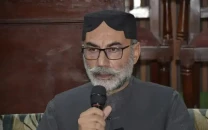

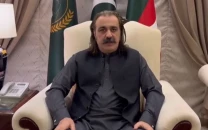


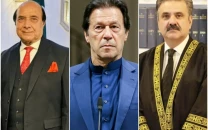
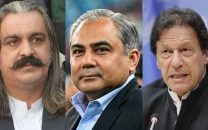













COMMENTS
Comments are moderated and generally will be posted if they are on-topic and not abusive.
For more information, please see our Comments FAQ